
Pin on Striking
Traditional Angolan clothing showcases the customs and traditions of different ethnic groups. Each group has its own unique style, characterized by colorful patterns and designs. The intricate embroidery and vibrant fabrics make traditional Angolan attire a sight to behold. Wearing traditional clothing is a way for Angolans to celebrate their.

1000+ images about Angola on Pinterest Eric Africa and John kenny
Angola's traditional attire showcases the country's rich cultural heritage. The most common traditional clothing worn by men and women are capulana and kanzu. Capulana is a colorful fabric worn as a wrap skirt or shawl, while kanzu is a long, loose-fitting robe. These garments are often adorned with intricate patterns and designs that represent Angola's diverse ethnic groups.
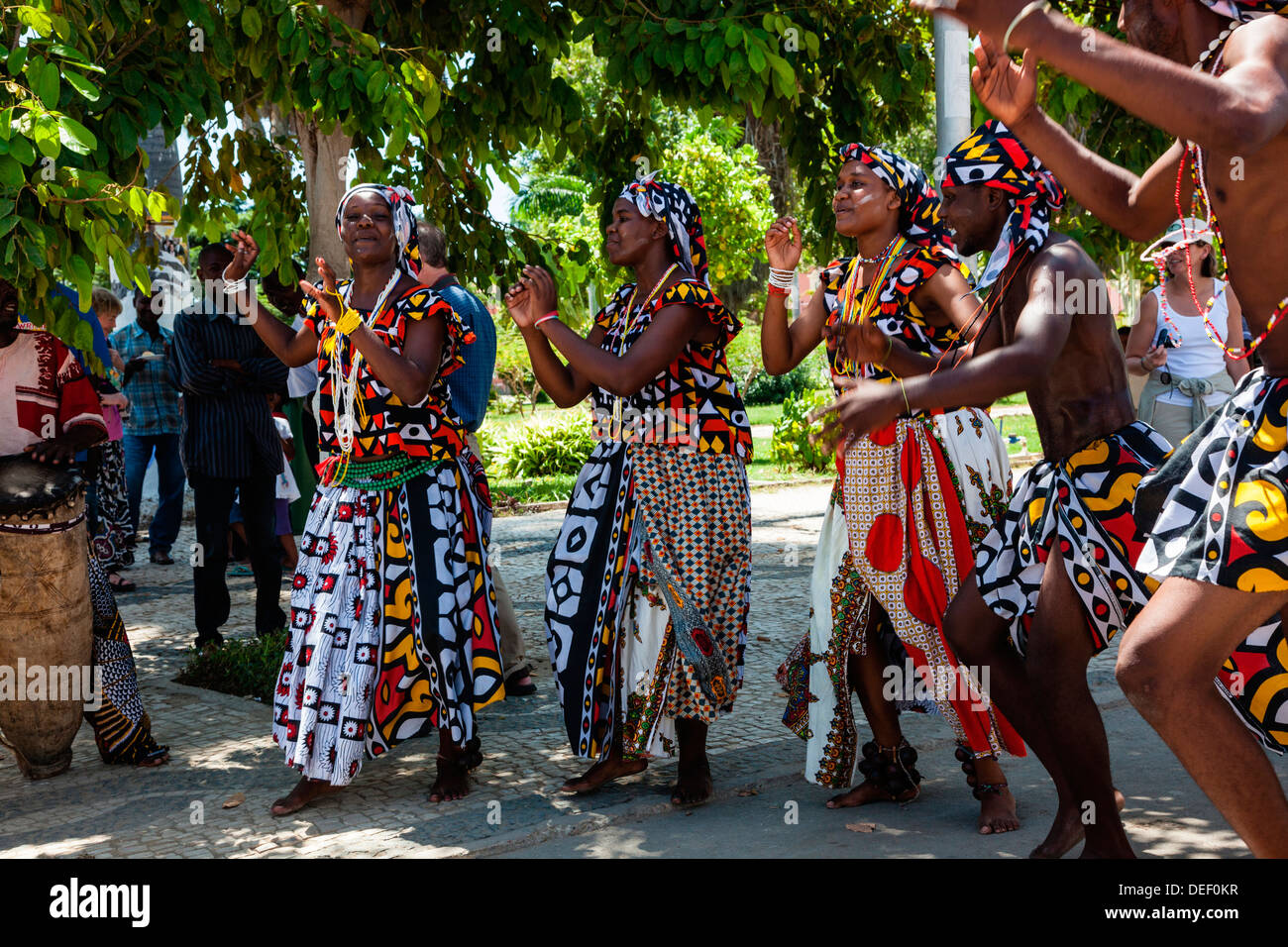
Africa, Angola, Benguela. Group dancing in traditional dress Stock Photo 60566123 Alamy
Capulana is a traditional fabric in Angolan culture that holds significant cultural, social, and symbolic value. It is commonly used as clothing, headscarves, and even baby carriers. Capulana patterns often convey messages, stories, or reflect the wearer's social status. This fabric is deeply embedded in Angolan traditions and is a powerful.
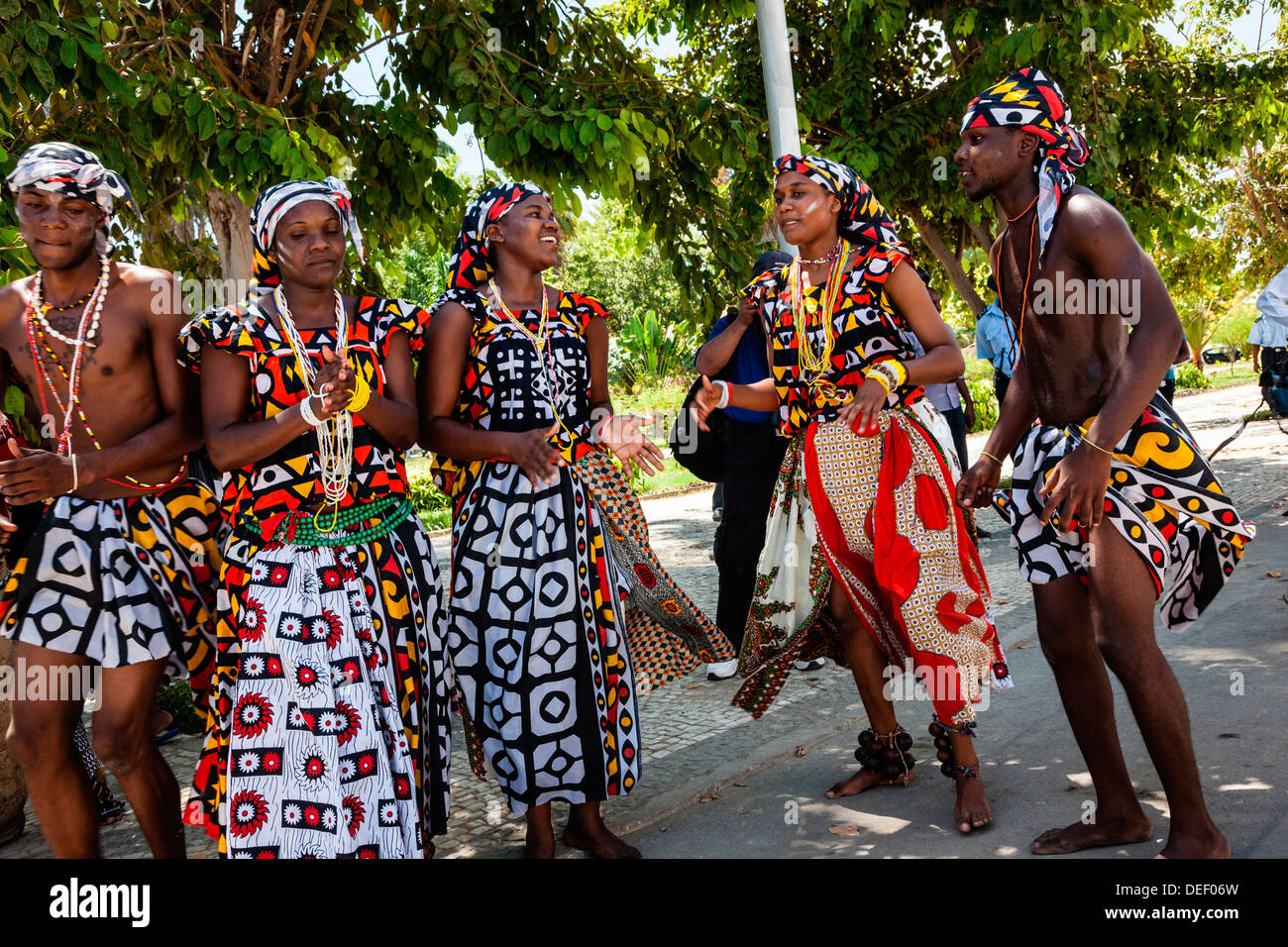
Africa, Angola, Benguela. Group dancing in traditional dress Stock Photo 60565761 Alamy
Cheerful African prints used in traditional clothes are magnificent. For example, in Angola, there is a tribal fabric called "samakaka" that simply can't be confused with any other traditional cloth. It has such a catchy and unique print that you'll make it out even among other African folk prints. And by the way, the samakaka fabric is very popular all around the world, far from.

Angola African fashion, South african fashion, African print dresses
This essay discusses the relations between tradition and modernity, individual and collective identity within the perspective of dress and fashion in Angolan urban spaces, particularly in Luanda. It addresses the printed cloth, or pano, not only as a daily worn item on the streets of Angolan cities but also as an important element for fashion design and in the work of Angolan designers.

Dressed in Samacá, Angolan traditional fabric. LisetePote design Latest african fashion
National dress of Angola: Panos. Angola National symbols. ⏪ Back to the national symbols of Angola. What is Angola known for? Angola is known for large reserves of oil and diamonds. Where is Angola located? Neighbours of Angola. Namibia. Democratic Republic of the Congo. Zambia.
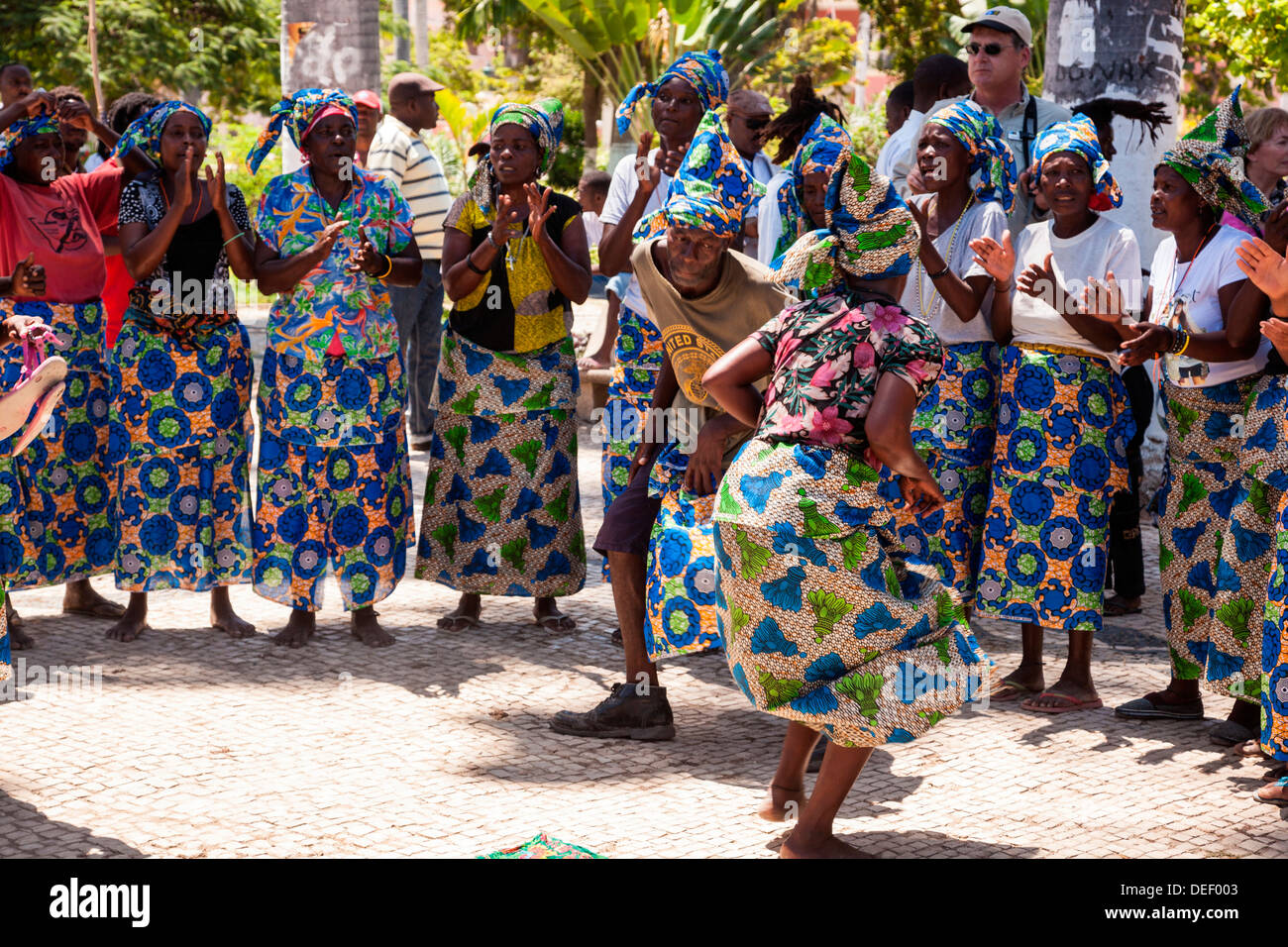
Africa, Angola, Benguela. Women and men dancing in traditional dress Stock Photo 60565571 Alamy
People in Angola, especially men, usually wear contemporary Western-style clothes today. But some traditional garments are still in use, although mostly in rural areas or for special occasions. One of the last national garments that can be seen in the streets of Angola on a daily basis is a pano, an African batik dress.

walking distance & et cetera Angola Traditional Clothing
Another popular dress being rocked at Angolan traditional weddings is the samakaka. This is a bold and beautiful dress from Angola.It is made in a variety of color blends albeit, but the most common samakaka prints are black, red and white, representative of the color symbol of Angola.
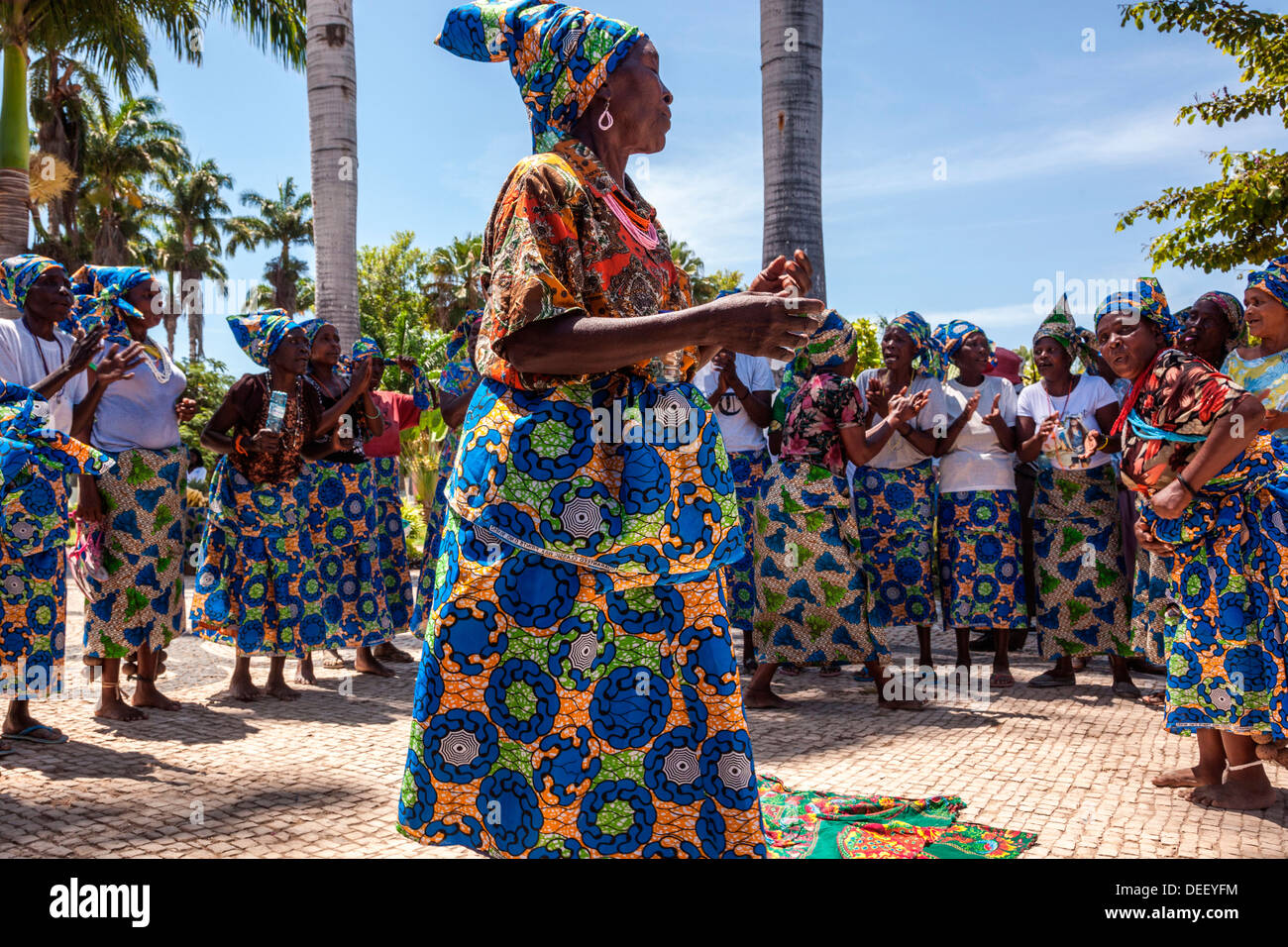
Africa, Angola, Benguela. Women dancing in traditional dress Stock Photo Alamy
Traditional Angolan religions believe in a close connection with the spirit of dead ancestors. They believe that ancestors play a part in the lives of the living. Therefore, the spirits of dead ancestors remain prominent members of the community.. Dress as you would in the office. Dressing well demonstrates respect towards your hosts. Shake.

asignaturas insti Angola
In the towns and cities, Western-style clothing is common, though some people still wear traditional clothing. The villages remain more traditional, where women wear panos, African wraparound batik garments. Dressing up for parties and special occasions in the cities ; What was the history and culture of Angola? Present-day Angola is a.
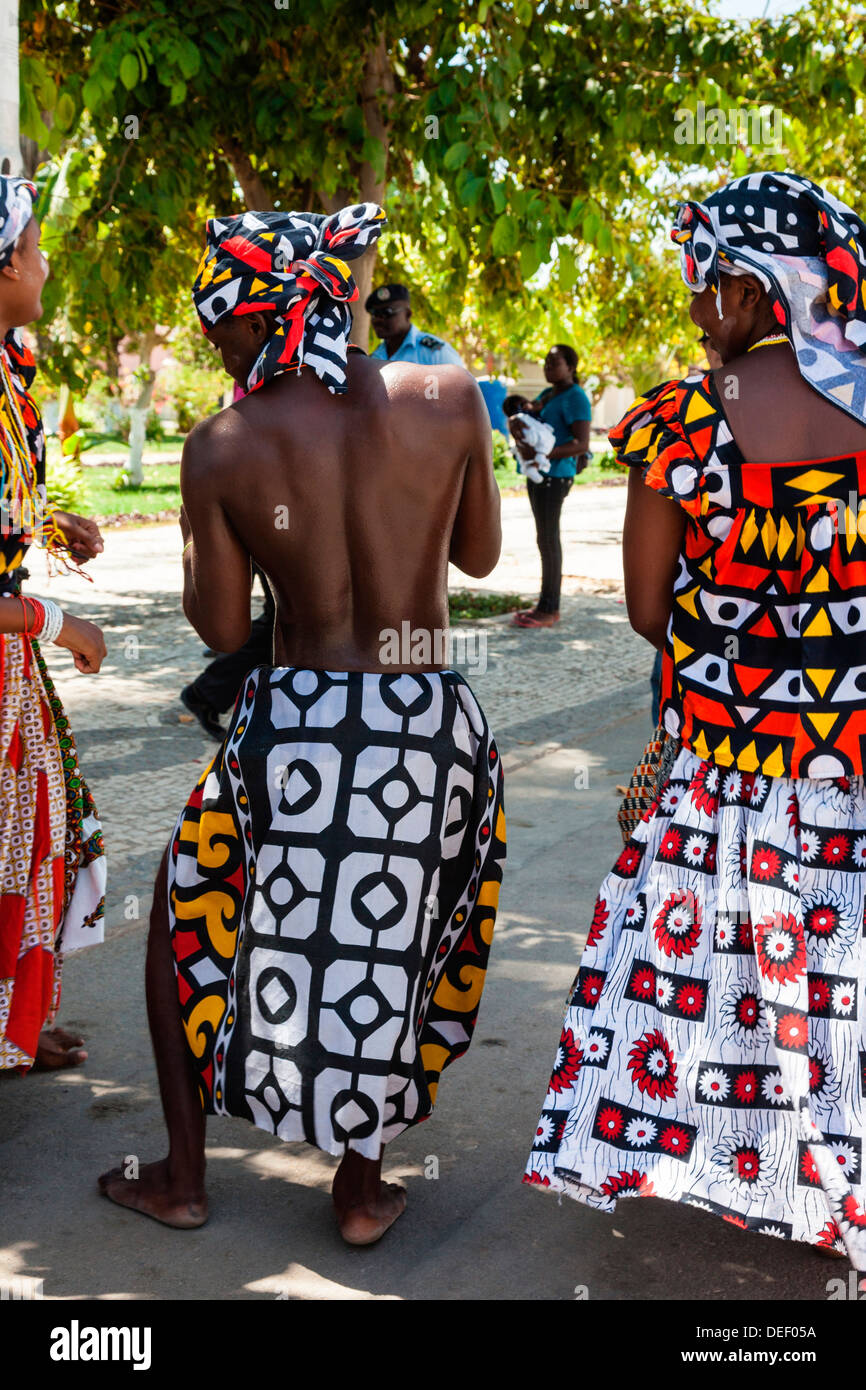
Africa, Angola, Benguela. Group dancing in traditional dress Stock Photo Alamy
People in Angola, especially men, usually wear contemporary Western-style clothes today. But some traditional garments are still in use, although mostly in rural areas or for special occasions. One of the last national garments that can be seen in the streets of Angola on a daily basis is a pano, an African batik dress. And even this item had to modernize and Westernize a little to be still.
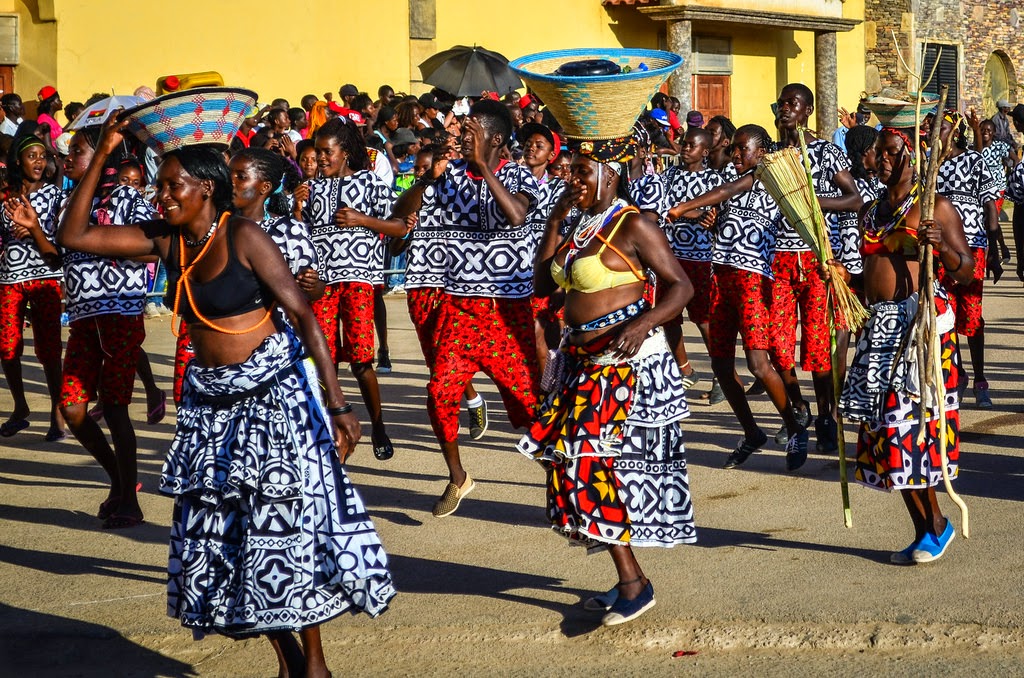
walking distance & et cetera Angola Traditional Clothing
At the heart of Angola's traditional clothing lies the Pano, which is considered the national dress of the country. The Pano is a loose-fitting, brightly colored garment that exudes elegance and grace. Its distinct features and cultural significance make it an integral part of Angolan identity.

Africa angola woman hires stock photography and images Alamy
Traditional clothing still exists among some ethnic groups. For example, Mumuilas women in southern Angola wear elaborate beadwork and bracelets on their neck, arms, and legs. Greetings Female friends and friends of the opposite sex greet by kissing one another once on each cheek. Good male friends may greet with a brief hug and several slaps.
More from Miss Universe 2009 African Queens in National Costume & Evening Gown Presentations
What is the traditional dress of Angola? The villages remain more traditional, where women wear panos, African wraparound batik garments. Dressing up for parties and special occasions in the cities almost certainly means wearing Western-style outfits. Angolan youth prefer casual jeans and T-shirts, except for special occasions.

Rare photos of Angola's tribal people Daily Mail Online
Traditional Dresses: Angolian Traditional Dresses, Angola Wedding Dresses, Angola Dresses, AngolaAngolan dresses are a beautiful and vibrant expression of An.

Angola Fashion Week 2015 Nadir Tati Ideias fashion, Semanas de moda, Design de moda
Attention! Your ePaper is waiting for publication! By publishing your document, the content will be optimally indexed by Google via AI and sorted into the right category for over 500 million ePaper readers on YUMPU.